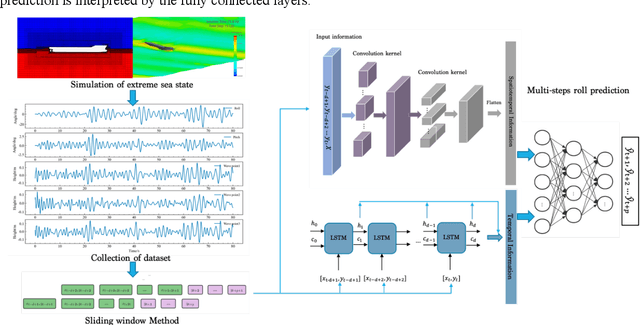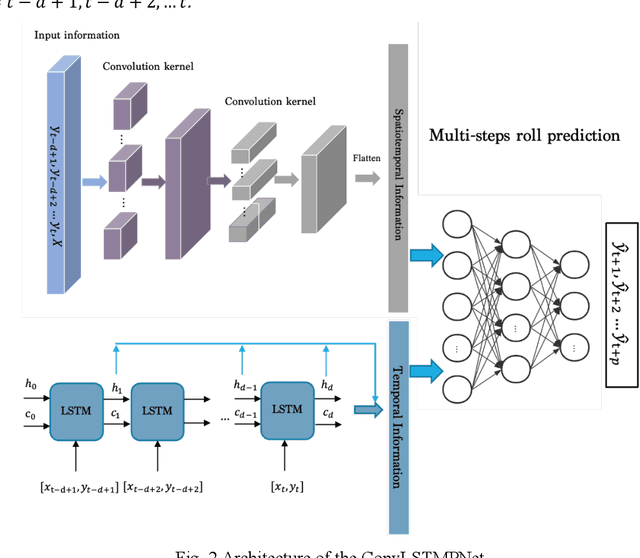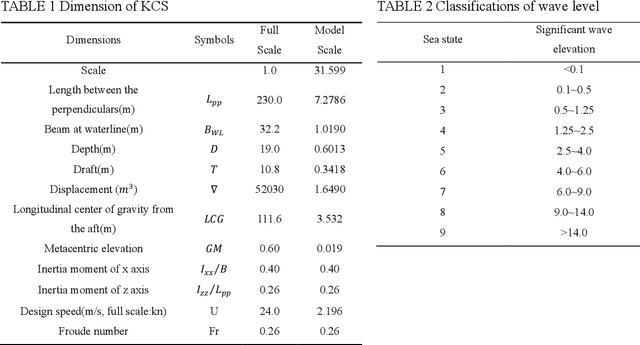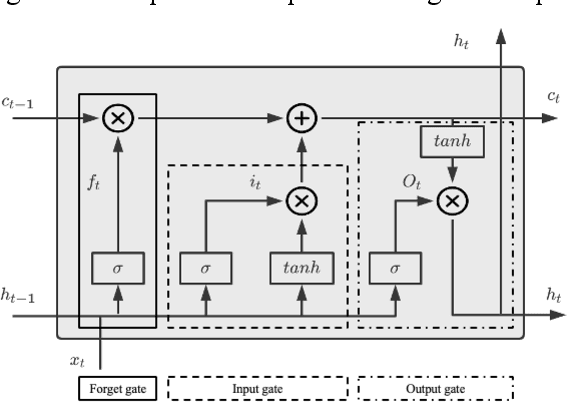Shao-Rong Xie
A Data Driven Method for Multi-step Prediction of Ship Roll Motion in High Sea States
Jul 26, 2022



Abstract:Accurate prediction of roll motion in high sea state is significant for the operability, safety and survivability of marine vehicles. This paper presents a novel data-driven methodology for achieving the multi-step prediction of ship roll motion in high sea states. A hybrid neural network, named ConvLSTMPNet, is proposed to execute long short-term memory (LSTM) and one-dimensional convolutional neural networks (CNN) in parallel to extract time-dependent and spatio-temporal information from multidimensional inputs. Taken KCS as the study object, the numerical solution of computational fluid dynamics method is utilized to generate the ship motion data in sea state 7 with different wave directions. An in-depth comparative study on the selection of feature space is conducted, considering the effects of time history of motion states and wave height. The comparison results demonstrate the superiority of selecting both motion states and wave heights as the feature space for multi-step prediction. In addition, the results demonstrate that ConvLSTMNet achieves more accurate than LSTM and CNN methods in multi-step prediction of roll motion, validating the efficiency of the proposed method.
 Add to Chrome
Add to Chrome Add to Firefox
Add to Firefox Add to Edge
Add to Edge